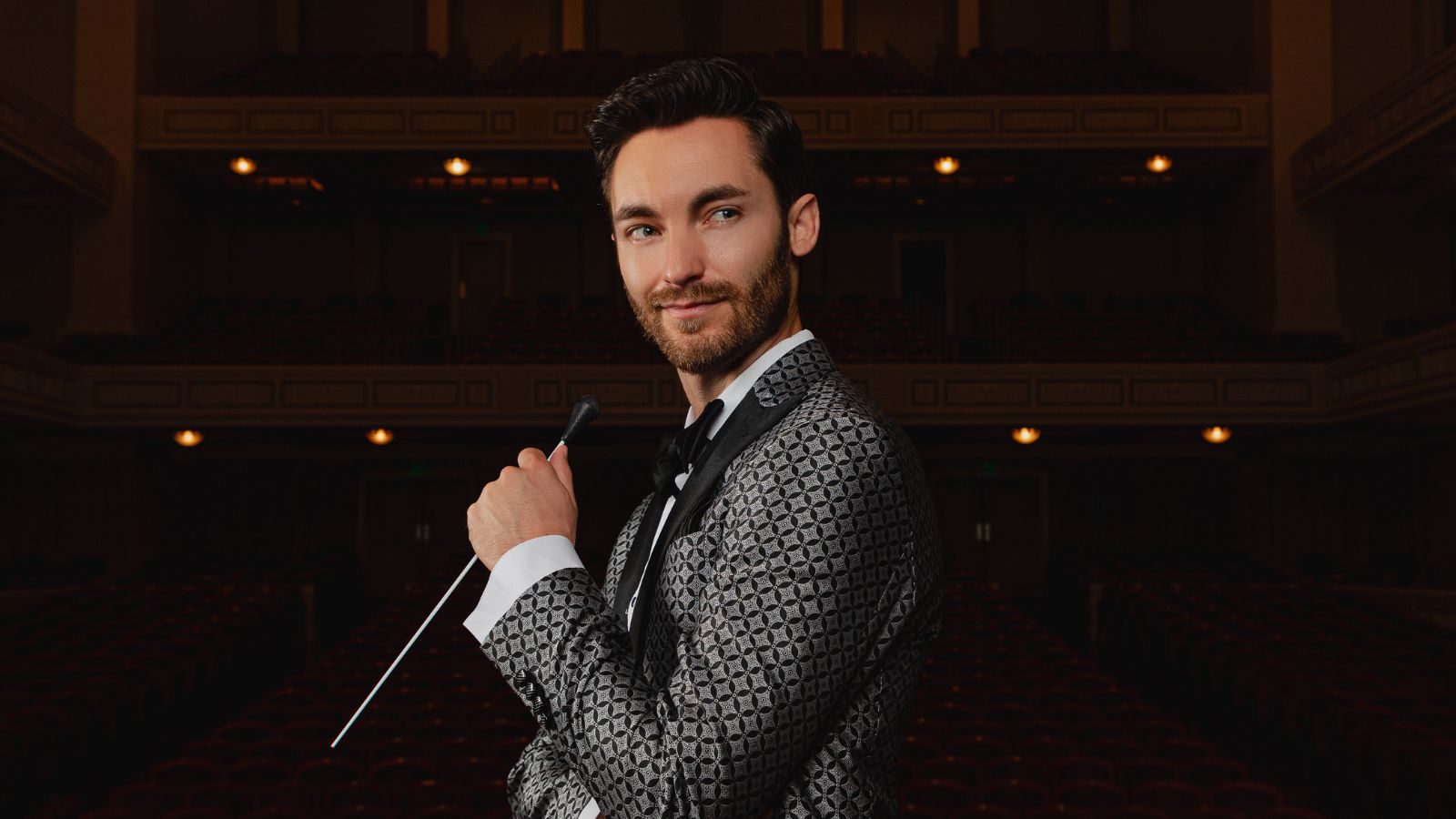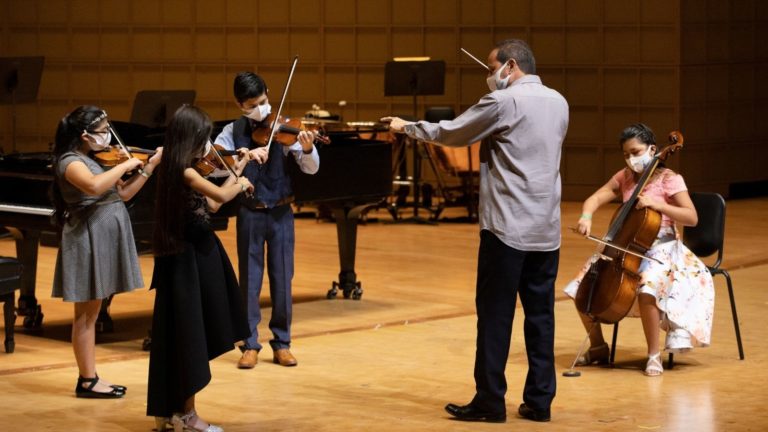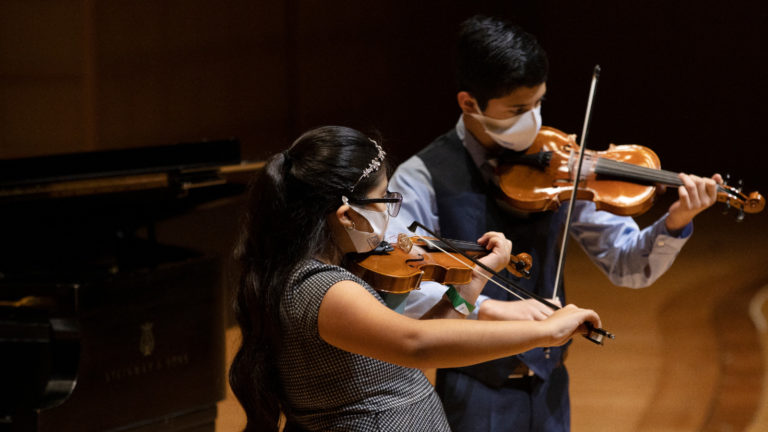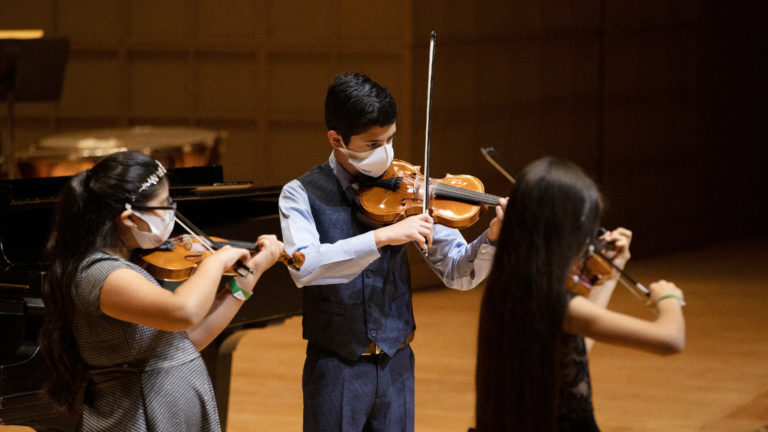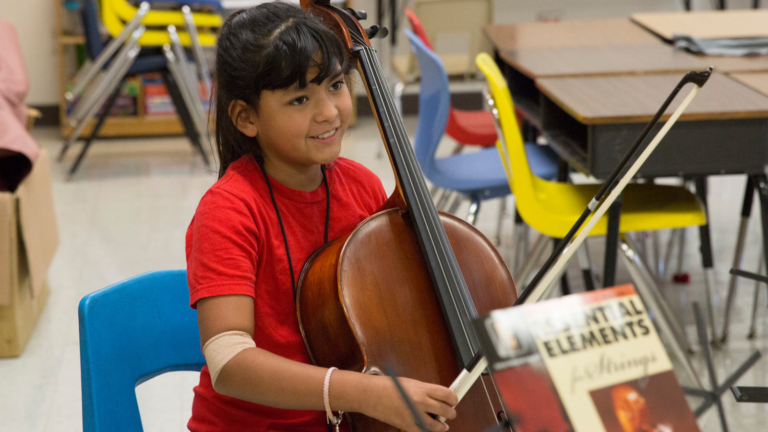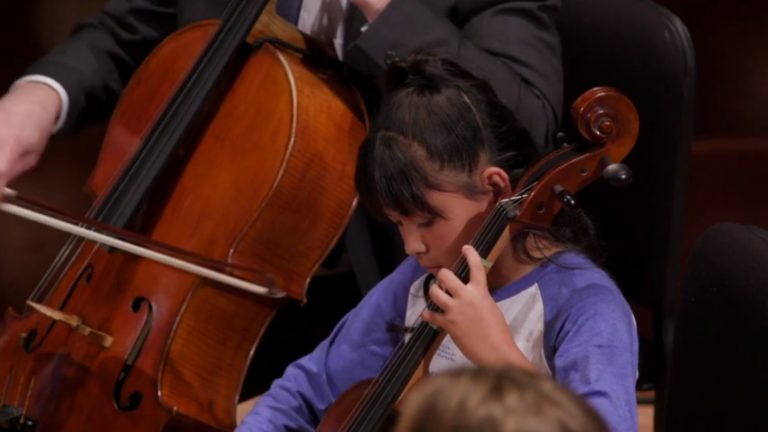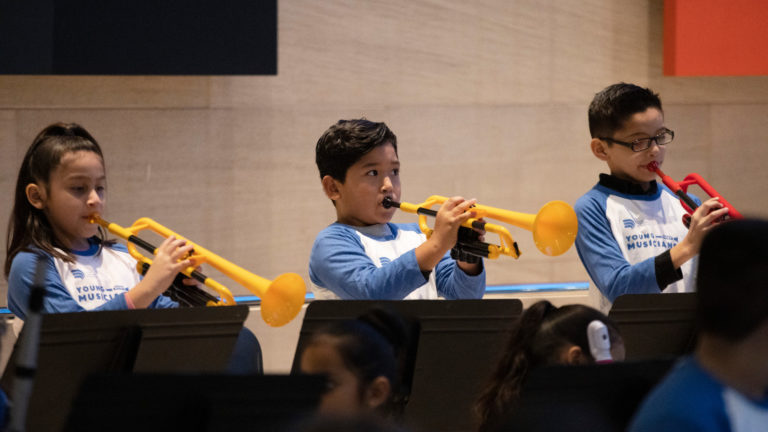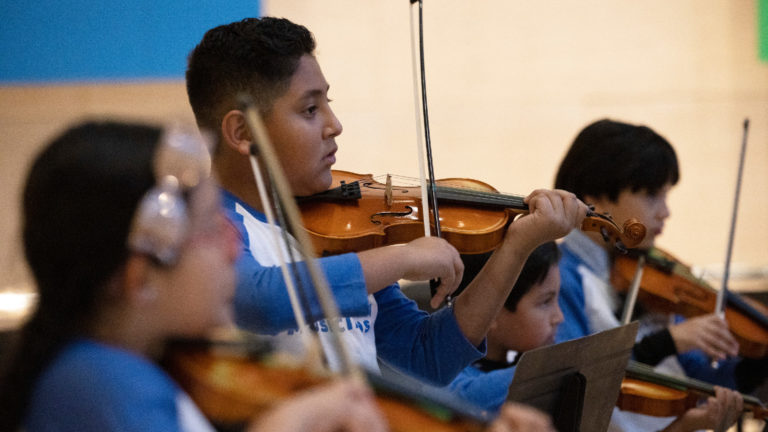Hispanic Heritage Month 2022

Hispanic Heritage Month is celebrated each year from September 15 through October 15. This month of remembrance and celebration begins on the independence day for Latin American countries El Salvador, Guatemala, Costa Rica, Nicaragua and Honduras. The independence days of Mexico and Chile fall on September 16 and September 18, respectively.
During the month, we are reminded that there is no one definition of Hispanic heritage. While specific countries may have specific traditions, residents and citizens are influenced by travels, education, experiences and history. During the 2022/23 season, many DSO programs include Latin and Hispanic artists and traditions, but as we look closer, we learn how styles and music evolve. We hope you enjoy learning more about these composers, styles, artists and performances and the varied stories they have to tell.
Yanga
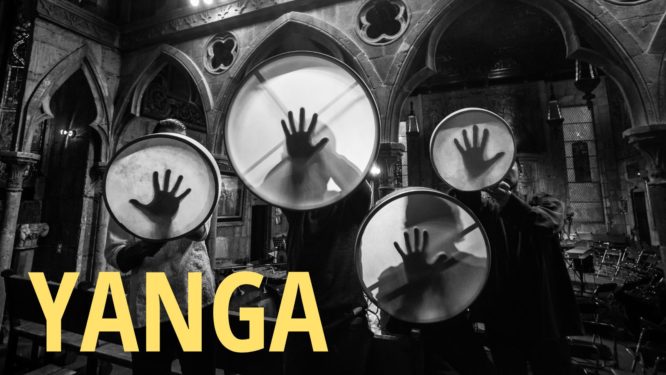
Watch an excerpt from our partnership with the Latino Arts Project and African American Museum!
Latino Arts Project is proud to partner with the Dallas Symphony Orchestra for a special concert to coincide with the exhibition Yanga: Journeys to Freedom currently at the African American Museum until October 31, 2022 and Yanga and the AfroMexican Experience currently at the Latino Cultural Center until October 15, 2022.
Watch Now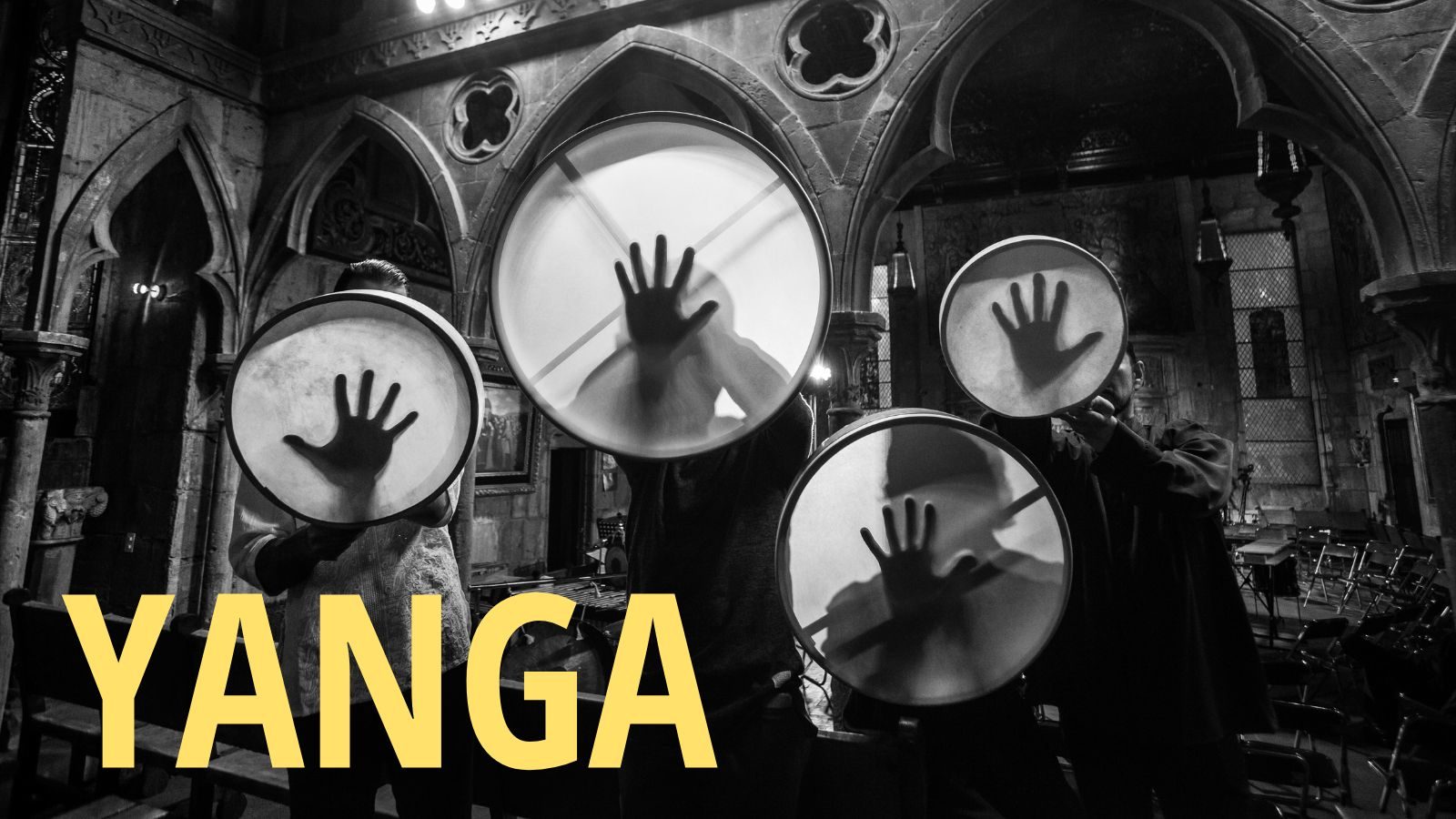
Meet the Artist: Gabriela Ortiz
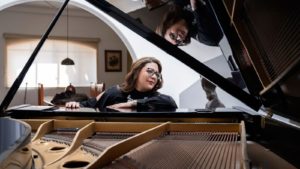
Latin GRAMMY®-nominated Gabriela Ortiz is one of the foremost composers in Mexico today, and one of the most vibrant musicians emerging in the international scene. Her musical language achieves an extraordinary and expressive synthesis of tradition and the avant-garde; combining high art, folk music and jazz in novel, frequently refined and always personal ways. “It’s difficult to describe my aesthetic,” says Ortiz. “My points of inspirations come from many places and many cultures – there are influences of the Americas and folk music but also of Africa and other areas. It is very collective.”
In February, the DSO will perform her 2018 work Antrópolis. A dancer in her youth, Ortiz took inspiration from the famous dance clubs of Mexico City to create a short piece that remembers their influence and importance in decades of nightlife. “In Mexico, people say ‘let’s go to an antro – let’s go to a dance club.’ I paired that with ‘-polis’ or city, to create the title of the work. There were four historic dance clubs in Mexico City, but they have disappeared. So this work is me celebrating those clubs, driving through Mexico City. It inspires you to go dancing and remembers that culture.”
Kim Noltemy Young Musicians Program
Young Musicians provides music education, instruments, performance and mentorship opportunities at no cost to students and families. All Young Musicians students participate in classes on their chosen instrument, as well as ensembles, drum circle and choir, with a progressive curriculum that includes social and emotional learning.
Meet the Artistic Director: Roberto Zambrano
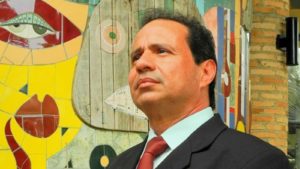
I was born in the city of Barquisimeto, Venezuela. I owe my love of music and training to my loving mother.
My childhood memories are of my hometown of Barquisimeto and the small town of Biscucuy in the Portuguese State. I spent my vacations at the foot of the mountains of the Venezuelan Andes. I think that contact with the countryside and nature enriched me. Mountains, rivers and the work of the field formed my character of loving work from a very young age. Barquisimeto did the same. It was a city of opportunities.
I joined the first generation of The System of Youth and Children’s Orchestras (El Sistema) in 1975. My brother took me to the first rehearsal of this new orchestra. That day, while listening to Beethoven’s Fifth Symphony, I fell in love with music. I asked my mother if she would support my career in music, and she immediately said yes.
What I would most like people to know about my culture and my country is what we have achieved with El Sistema. Since its inception, it has been able to give young people the opportunity to enter the world of music without any limitations. The Venezuelan people have integrated all races and social classes through music. I credit Maestro José Antonio Abreu, founder of this program, my guide and friend, who gave us the chances to grow and make history through music in Venezuela and the world. My country gave me many opportunities, for which I am grateful. It is for that and many other reasons that I always carry the motto of El Sistema that says: TOCAR Y LUCHAR (To Play and To Fight).
Meet the Young Musicians Manager: Ashley Alarcon
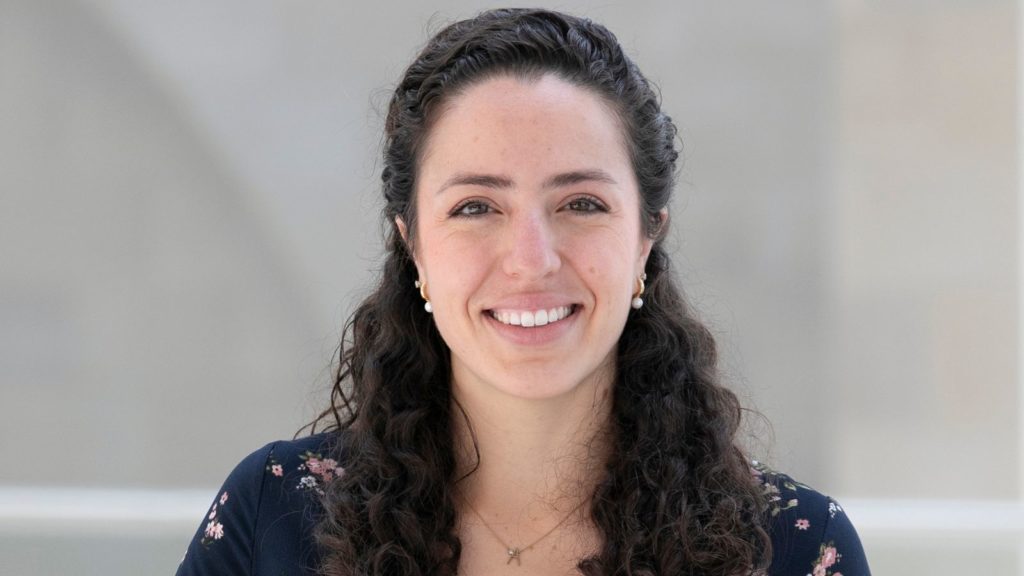
Can you tell us about where you were born/grew up?
I was born and raised in Mexico City until I was 15 years old and then began attending Highschool boarding school in the USA. I continued my undergraduate and graduate education abroad and would visit home once or twice a year. Mexico City continues to be my home despite spending so many years away from it.
How you were introduced to music and can you share a little bit of your experience studying music? For instance, were your experiences studying music in Mexico different than that in the U.S. and how has that shaped you as a musician and teacher?
I was first introduced to music as a very young child because my dad was a professional orchestral performer and teacher. My sister and I would hang out at the conservatory while he taught trombone and I became fascinated by all the sounds that one could hear in the hallways. To me, normal life revolved around music and concerts. Later on, I was introduced to playing flute while on a trip to CA where I ended up attending a summer band program where I discovered that I had a talent for playing music. Immediately after coming back from that trip, my dad signed me up for private lessons with the principal flutist from Mexico City’s Philharmonic and that’s where my official journey began. I attended the Superior Conservatory of Music for 2 years where I learned the traditional European system of music before leaving to study abroad. This enabled me to be able to experience and compare both the conservatory and band educational systems. I definitely preferred the conservatory setting even after leaving Mexico City because I believed it included a wider range of skillsets pertinent to the instrument and catered to learning to play with more colors.
During my undergraduate, I attended a very small school which meant that the main focus for music students was on learning solo or chamber repertoire. Even though I yearned to engage in an orchestral program, these years proved to be very beneficial for learning solo repertoire, nuance, and the intricacies of chamber music. Later on, during my Junior year of college, I was accepted as Assistant Principal Flute at the St. Louis Youth Orchestra which became the highlight of my career at that time. I have always enjoyed and felt and home on stage and this opportunity opened many doors for learning orchestral repertoire that still pulls at my heart strings when I hear it. One of those pieces is Debussy’s La Mer.
During graduate school, I learned many pertinent skills for leading and engaging with community educational programs since I chaired the Woodwind Quintet Assistantship and we often played for Middle schools and High schools. These two years of intensive performing helped me see that many students that we engaged with were not aware of the possibilities of music, especially since the communities we visited were underdeveloped areas. The compassion I felt for these students fueled my interest to raise awareness about classical music among youth. Since many children were also minorities, I began to notice that whenever I shared where I was from and began speaking Spanish, their faces would light up and, often, they would come up to me after the concert and share where they were from and that they felt seen.
These, among many other beautiful experiences I have had in my life, have nurtured my passion for teaching. I deeply believe that children deserve the best education and, often, this is not only in how they learn a subject but, rather, in how they are cared for during the learning process. I want every child to be and feel seen, understood, and safe within a learning environment. I believe this is why teaching in the Young Musicians Program is my favorite part of each day!
Celebrating Hispanic Artistry throughout the season
Angélica Negrón: “What Keeps Me Awake” & “Arquitecta”
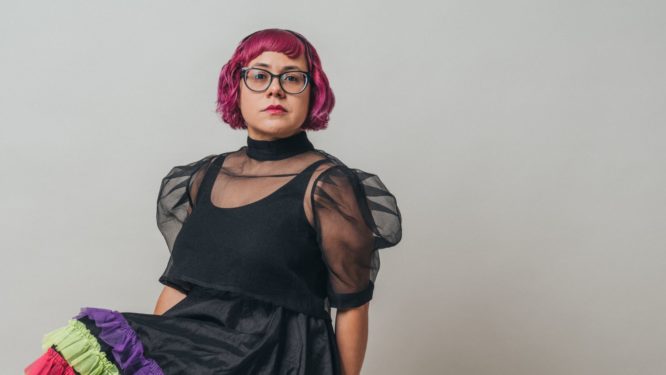
Brooklyn-based composer and multi-instrumentalist Angélica Negrón has been the DSO’s composer-in-residence since the 2020/21 concert season. The DSO presented the world premiere of her work En otra noche, en otro mundo in January 2021, and Negron curated a chamber music concert of works by women composers in November 2021 during the Women in Classical Music Symposium. When discussing En otra noche, en otro mundo she reflected on the “two worlds” that she felt torn between. “I really connected with [the poem that this work is based on] and the diaspora experience, being between two homes. I was born and raised in San Juan, but I’ve been in New York for almost 15 years. I connected with never quite being at home in one place or another.”
In May, the DSO will present the world premiere of Arquitecta, a piece written for orchestra and for Colombian singer Lido Pimienta. The work features a poem of the same name by Puerto Rican poet Amanda Hernández. Negron said, “Throughout the song, the orchestra will have recurring moments of flourishes incorporating disjointed fragments of Caribbean music as well as gestures inspired by natural soundscapes from Puerto Rico, sound-painting the landscape.” Even in a sonic language with influences of specific culture, themes in Arquitecta are truly universal, especially in reflecting on the role of women. “For the last several years, my mother became her own mother’s primary caregiver—in the wake of my grandmother’s recent death, Hernández’s evocative imagery of the house as Matriarch resonated deeply,” said Negron. “Lido Pimienta’s experience as a mother and her vulnerable but powerful voice bring life to Hernández’s celebration of women and the spaces they traditionally inhabit.”
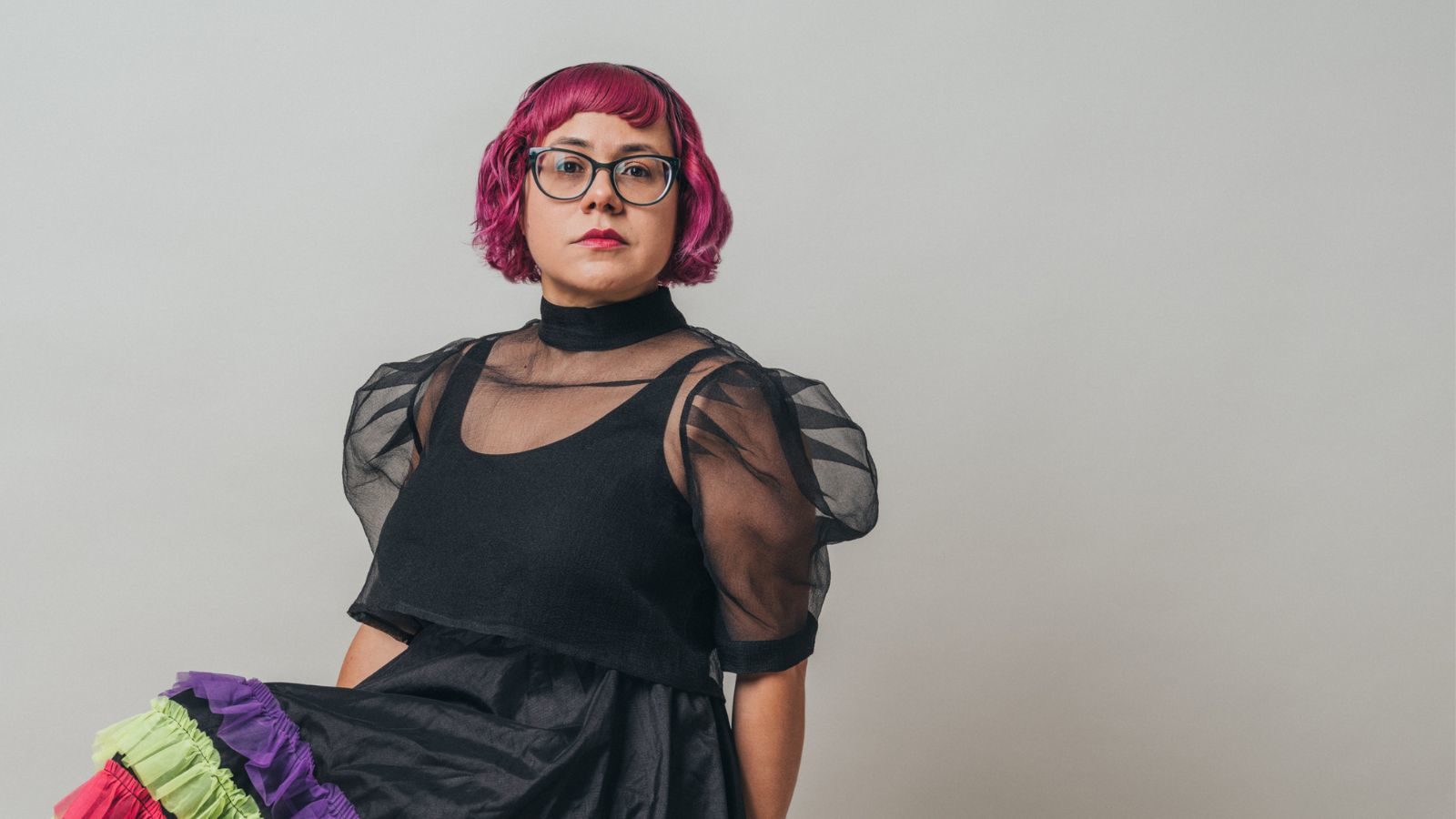
Juanjo Mena: Ravel & Debussy
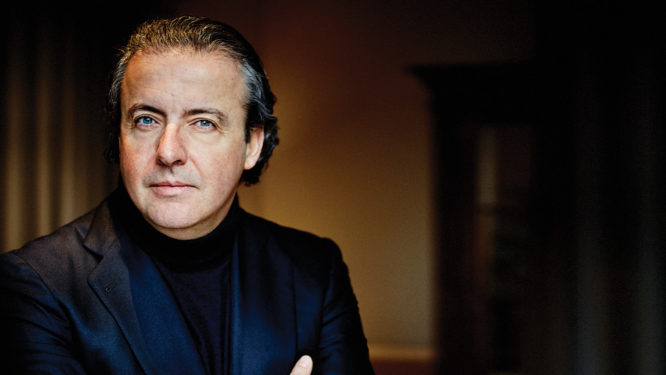
Two of Spain’s most beloved exports – distinguished conductor Juanjo Mena and soloist Javier Perianes – take the stage to celebrate Spanish and Latin contributions to classical music. Haydn’s highly dramatic “Trauer Symphony” opens the program followed by Ravel’s Concerto in G with jazz and Basque folk music influences. Then, Alberto Ginastera, one of the most innovative Latin composers of the 20th century, amplifies the voice of Argentinian folk music in Variaciones Concertantes. Followed by Debussy’s “Ibéria” which clearly invokes the Spanish fascination that became so popular in late 19th century France.
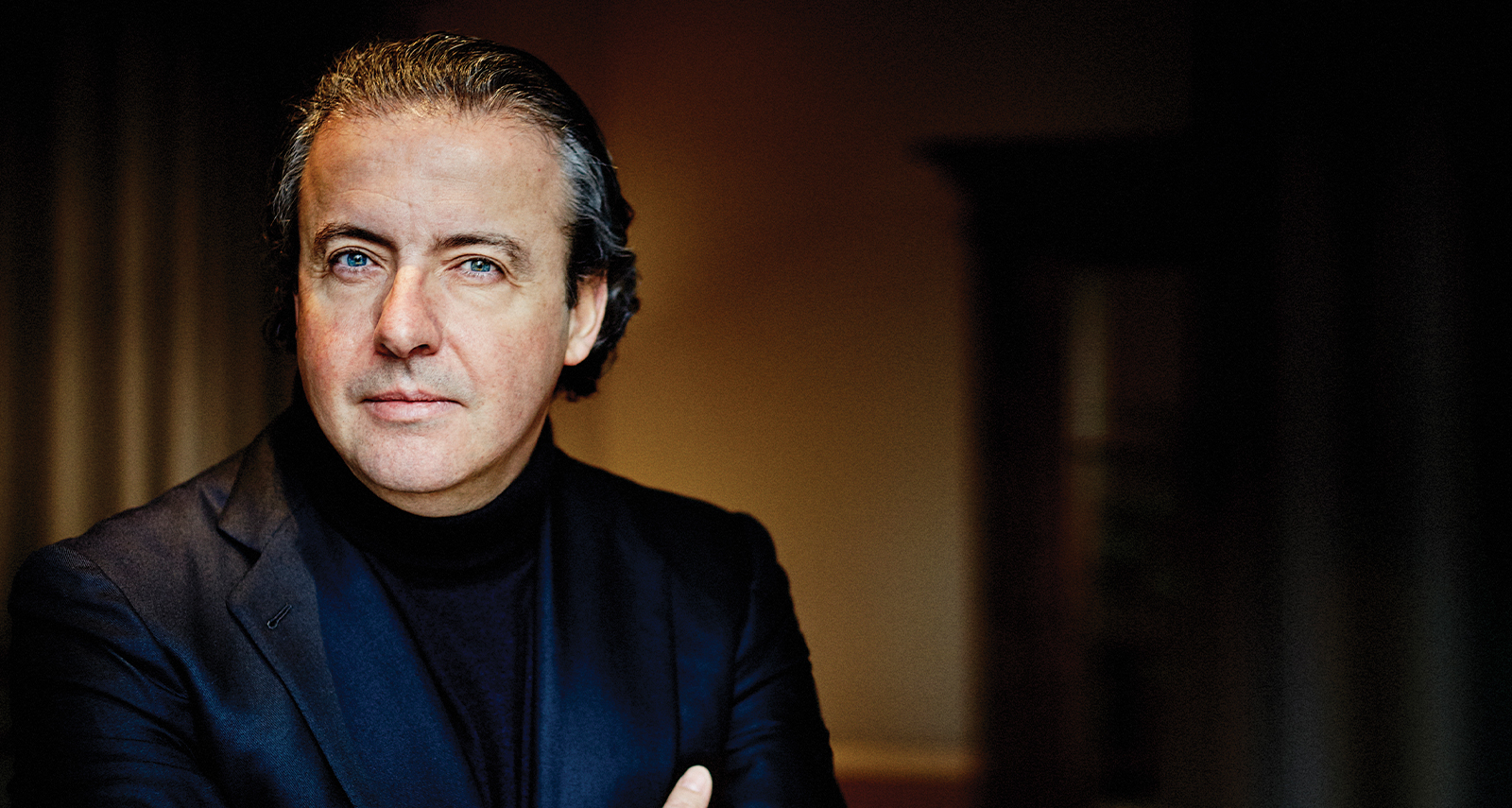
Ailyn Pérez: Día de los Muertos

Acclaimed soprano Ailyn Pérez joins us for a vibrant Day of the Dead concert, celebrating our lost loved ones with a colorful affirmation of life.
El día de Los Muertos is celebrated on November 1 and 2. Families believe that spirits of the dead return home for these two days to spend time with loved ones. The family builds altars to welcome them, and these can be incredibly elaborate! Though the details may change from one culture to another, many include yellow marigolds, cut tissue-paper banners and food as offerings. Recently, the skull and skeleton images have become more visible during this time of year. Mexican tradition reminds us that death is part of the cycle of life.
The Dallas Symphony has worked closely for many years with the Consulate General of Mexico in Dallas. Together they have built an altar in the lobby of the Meyerson. In recent years, that celebration has expanded to include a musical celebration inside the concert hall. On November 1, Assistant Conductor Maurice Cohn (Marena & Roger Gault Chair) will lead a program of music from Mexico and by Mexican composers to continue this celebration.
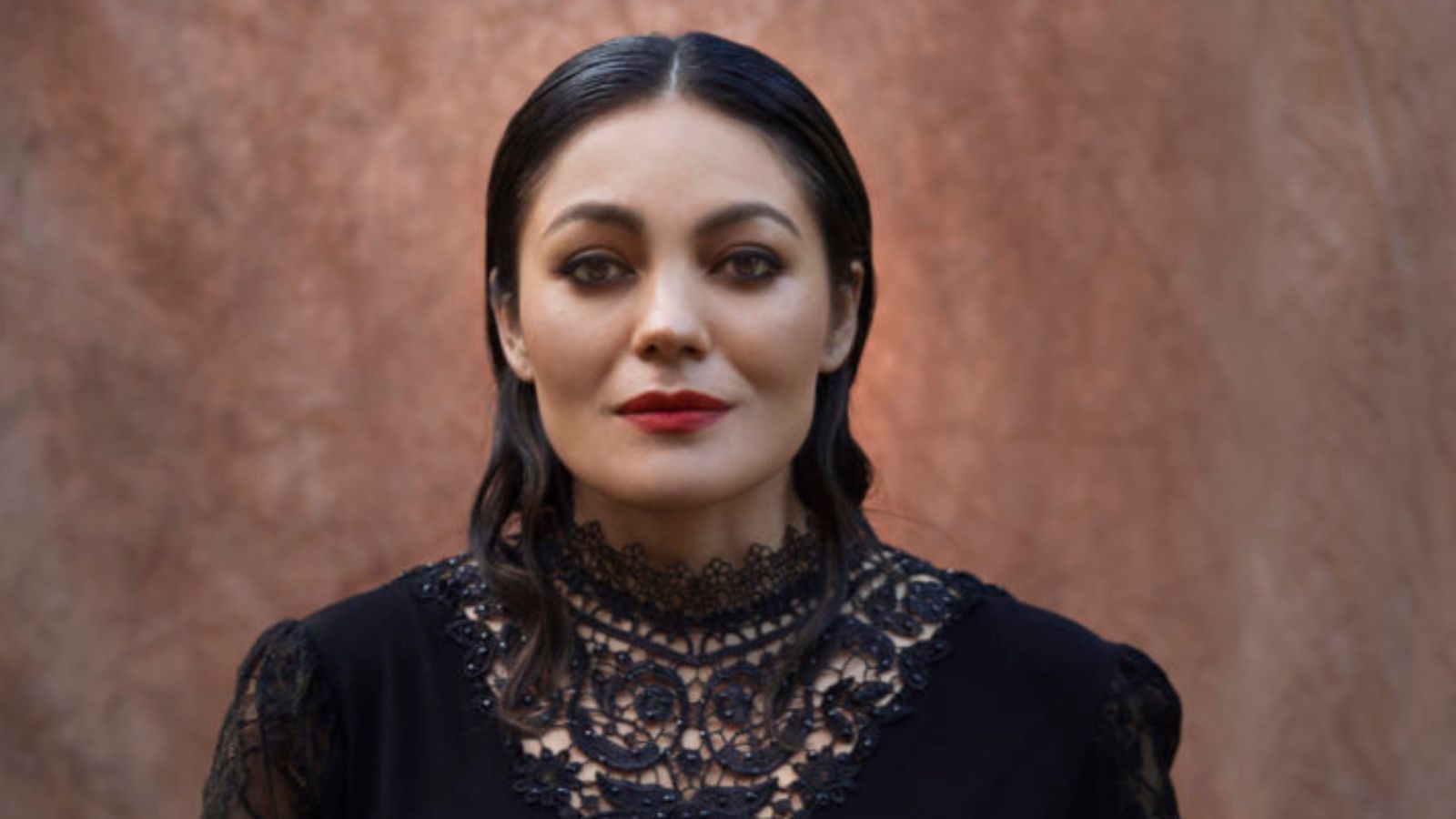
Adriana González: Verdi Requiem
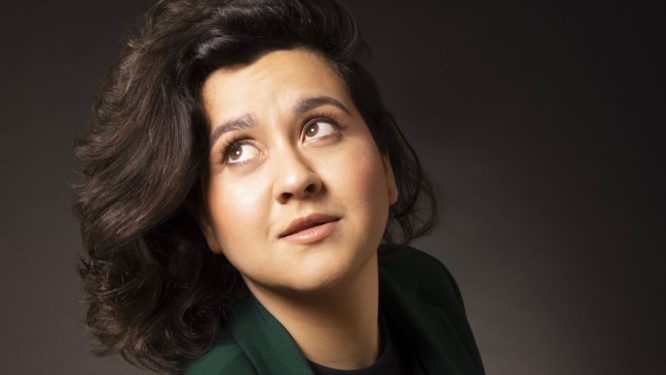
We are thrilled to welcome celebrated Guatemalan soprano and Otto Edelmann Competition First Prize winner, Adriana Gonzalez to perform Verdi’s Requiem. The orchestra, chorus, and virtuosic soloists tell a story filled with whirlwind emotions moving through profound loss, terror, and anger, and ending with a sense of eternal peace.
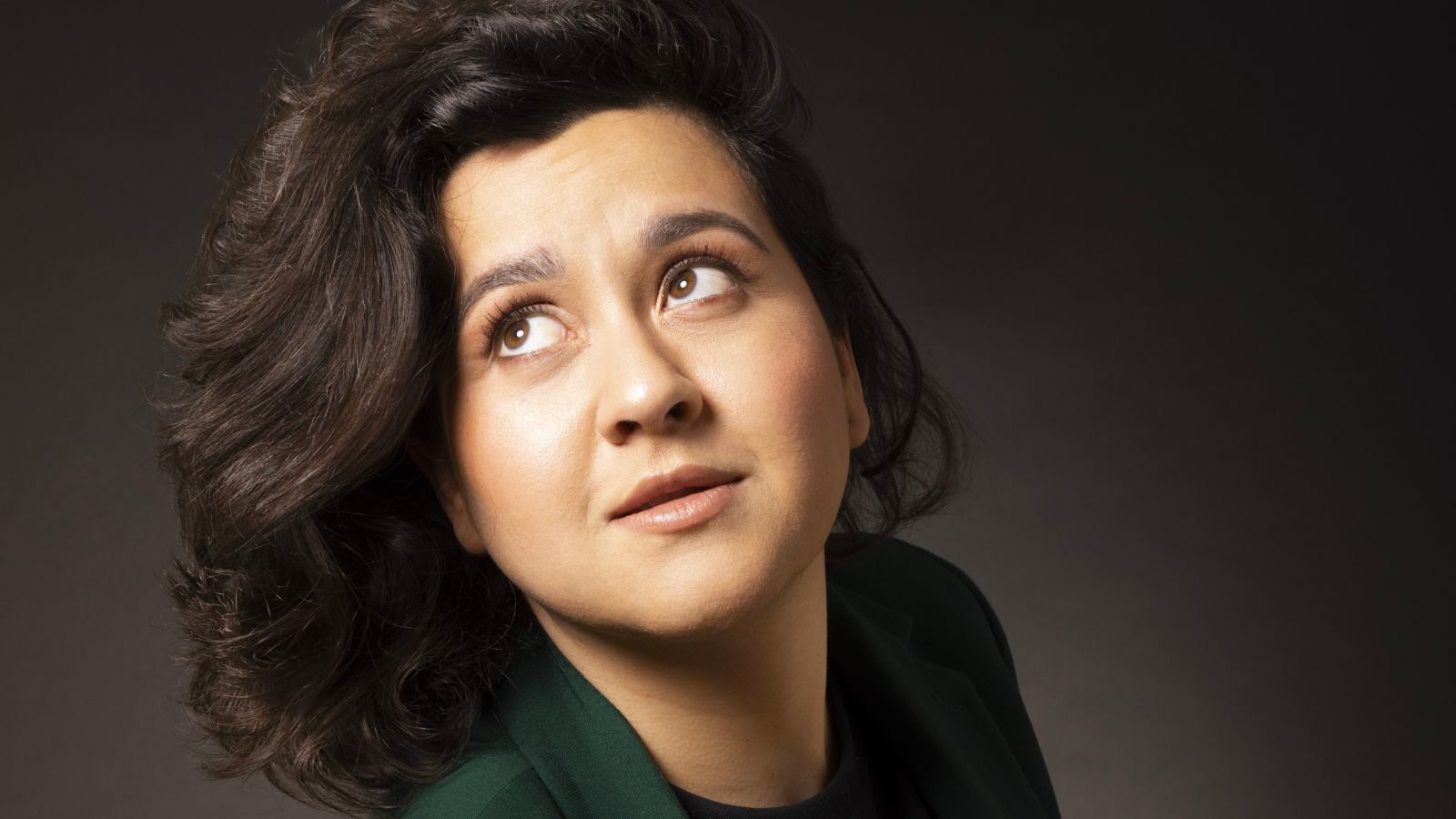
Gabriela Montero: “Latin” Piano Concerto
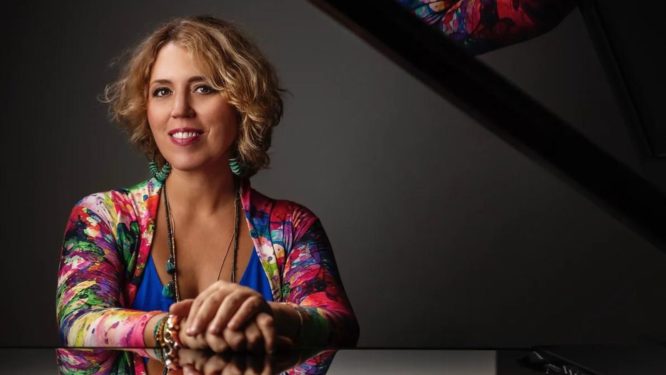
Gabriela Montero’s visionary interpretations and unique compositional gifts have garnered her critical acclaim and a devoted following on the world stage. She joins us on a program featuring her first full length composition, the “Latin” Piano Concerto, which honors the spirit of the spirit of Latin America and Mexican composer Gabriela Ortiz Antrópolis.
Born in Venezuela, Montero started her piano studies at age four with Lyl Tiempo, making her concerto debut at age eight in her hometown of Caracas. This led to a scholarship from the government to study privately in the USA and then at the Royal Academy of Music in London with Hamish Milne.
Montero made her formal debut as a composer with Ex Patria, a tone poem designed to illustrate and protest Venezuela’s descent into lawlessness, corruption, and violence.
ALSOP CONDUCTS SCHEHERAZADE TICKETS
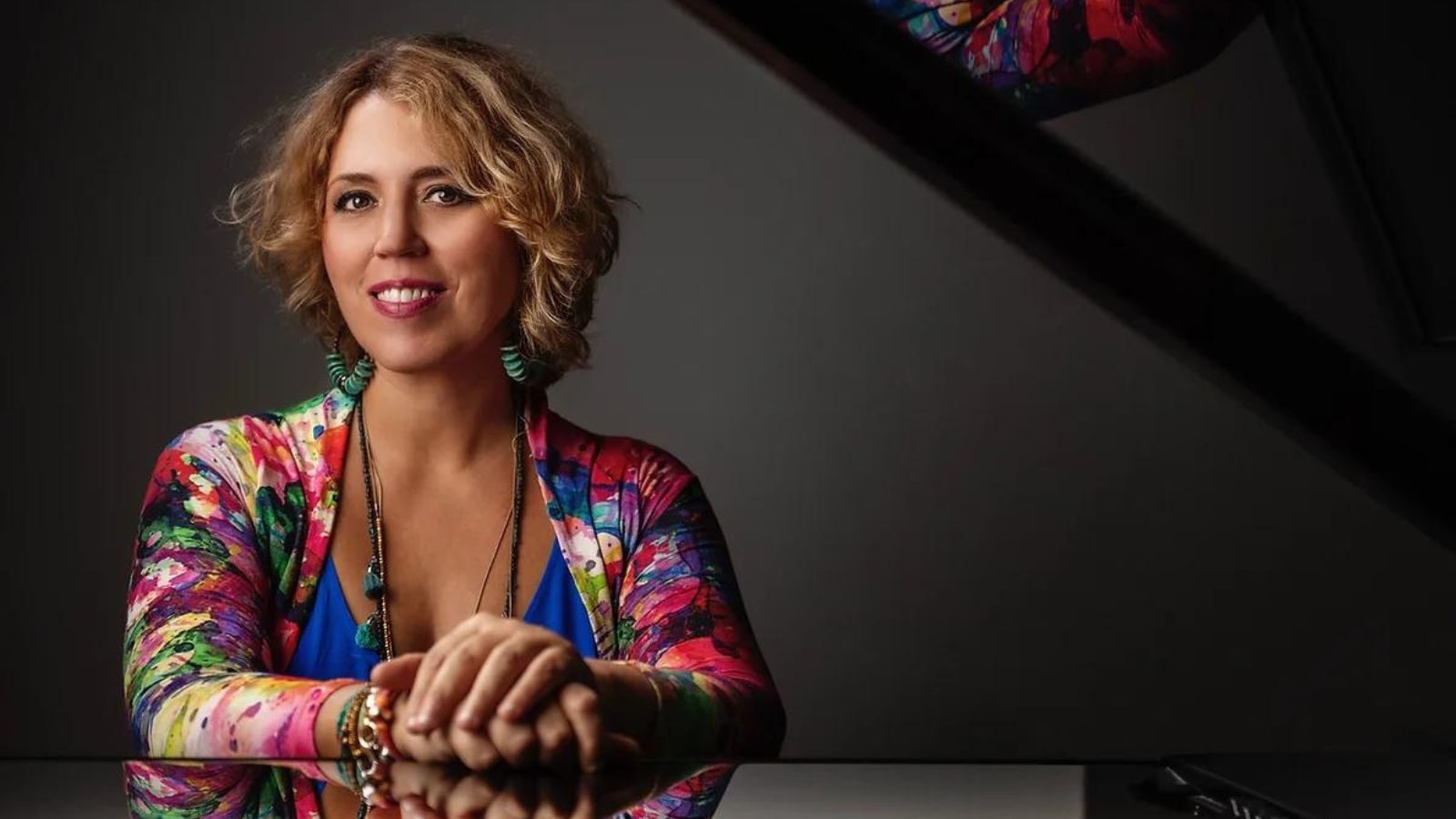
Lido Pimienta: Beethoven and Brahms
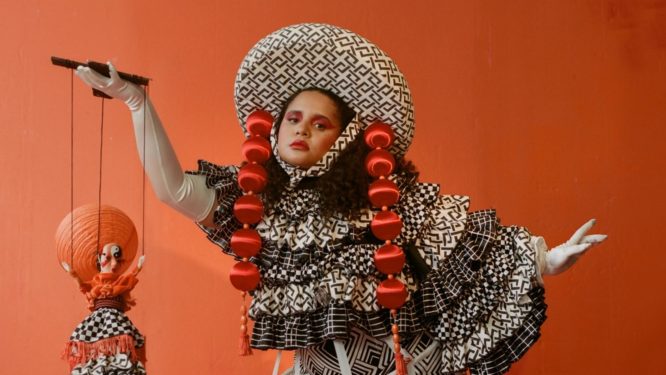
Canadian Columbian singer, curator and interdisciplinary artist Lido Pimienta joins us to perform Composer-in-Residence Angélica Negrón world premiere “Arquitecta”. Her most recent album, Miss Colombia has the effect of expanding the narrative about her dual Colombian/Canadian identity to her family’s mixed roots in the Afro-Colombian and Indigenous Wayuu communities, while establishing an ambitious new sonic palette that brings her closer to home.
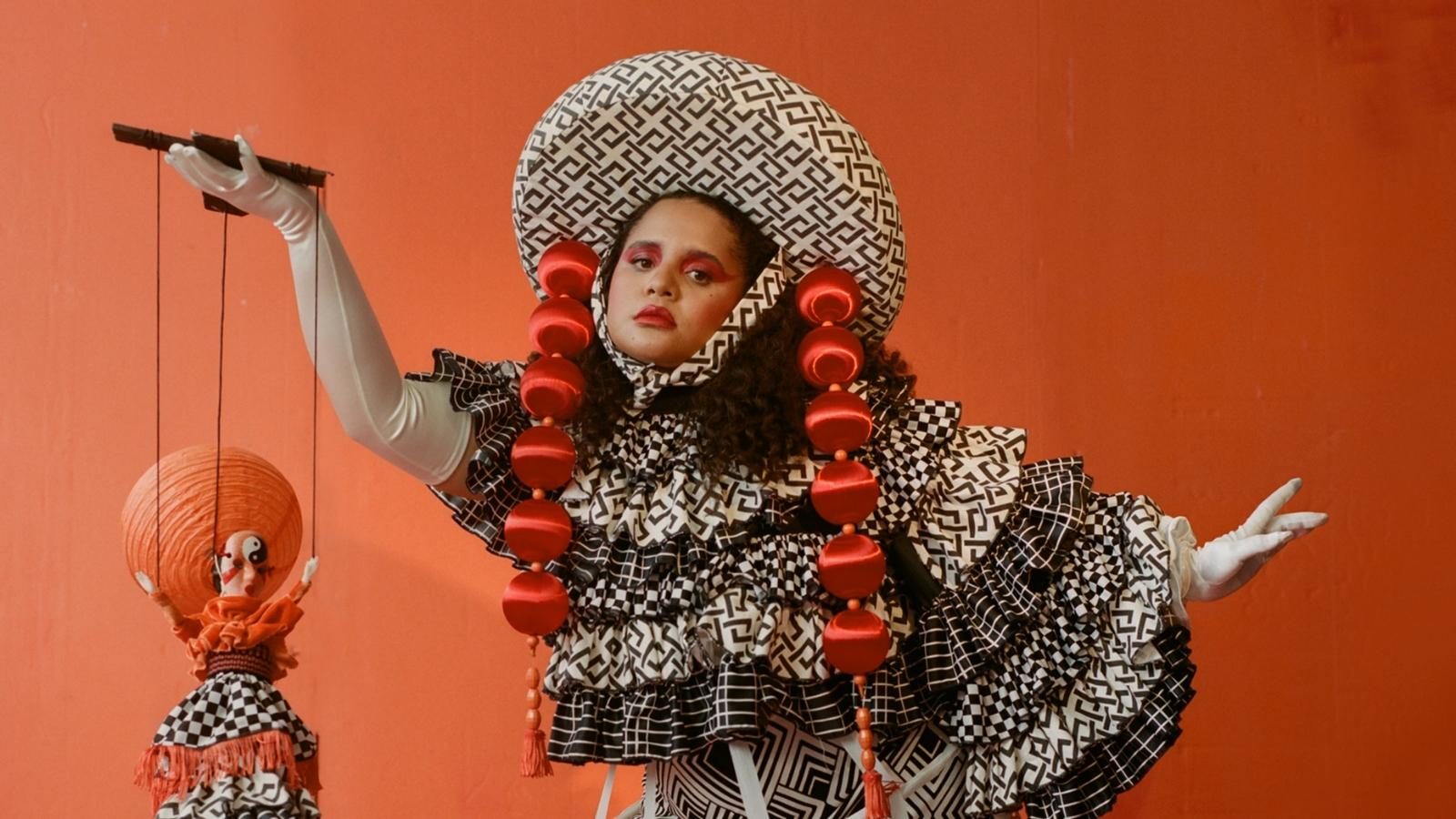
Enrico Lopez-Yañez: Aida Cuevas & Troupe Vertigo
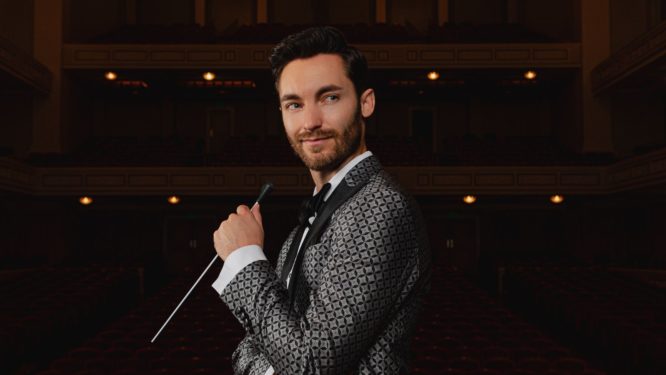
Enrico Lopez-Yañez is the Principal Pops Conductor of the Nashville Symphony where he leads the Symphony’s Pops Series and Family Series. Lopez-Yañez is quickly establishing himself as one of the Nation’s leading conductors of popular music and becoming known for his unique style of audience engagement.
With the DSO, he has most recently conducted the program for Aida Cuevas “Queen of Mariachi” and will conduct our upcoming Troupe Vertigo performance.
